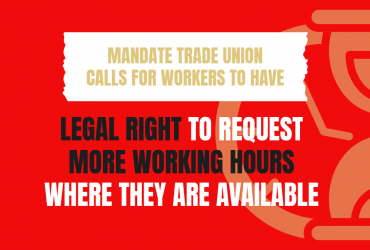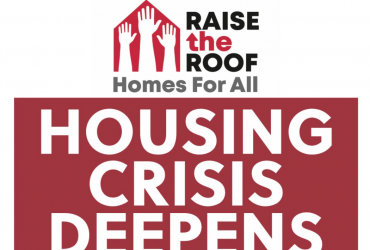Can small Irish businesses afford to pay higher wages?
Monday 25 August 2008
What we keep hearing from business representative bodies is that with energy costs increasing and consumer spending decreasing, businesses, including small firms, are really struggling. The fact of the matter is these energy cost increases are borne across the whole competitive environment so while a small firm is seeing an increase in energy costs of 17-20%, so is their competitor across the road and indeed across the water in other countries. In reality, energy costs amongst small firms are a relatively minor overhead and the real challenge for small firms is how to increase consumer spending.
Consumer spending is down at the moment and that is a direct result of the current economic climate but I fail to see how advocating a wage freeze will help small businesses in particular to recover. With energy costs set to rise for households, and most harshly amongst low paid workers who spend a much higher proportion of their income on heating and essential items, then the obvious economic result will mean consumers will have less spending power. It is important to note that most businesses will in all likelihood pass the increased energy costs onto the consumer thereby doubling the impact on ordinary consumers. Small firms are dependent on these people so a pay freeze will effectively result in small firms closing and jobs being lost.
What lobby groups representing small firms should be advocating is for wage increases across the board amongst large employers and small ones. If this option was adopted it would result in slightly smaller profits for a lot of still highly profitable organizations while increasing the average spending power of consumers which will support small firms and the overall economy. At the same time, as a protection to businesses including small firms, the trade union movement has agreed to an inability to pay clause which states that if a company is in serous financial difficulties, they can avail of this and avoid paying wage increases.
Trade unions such as Mandate have long advocated for a flat rate pay increase for all workers. Essentially what this would require is an increase in pay of approximately €30 per week which, if it were applied across the board, would not only protect average families from the imminent threat of poverty but would lift some families out of poverty.
While it is an easy option to say that increases in pay will result in a loss of jobs, it is simply not true. There is very little evidence to support this and on the contrary it is quite easily proven false using eurostat statistics. While Ireland has the second highest minimum wage in the EU27, Ireland, at 5.1% according to the most recent CSO statistics is still well below the average EU unemployment level of 6.8%. And to further prove this point, Luxemburg, the only country who pays a higher minimum wage in Europe is well below Ireland‘s unemployment levels at 4.1%. So it’s quite clear that unemployment levels aren’t directly related to wage levels.
While Ireland has seen a huge increase in unemployment during the year it is important that we keep perspective on this. The majority of all job losses have been in the construction industry which is not a low paid industry. These workers traditionally have had disposable income which has supported small businesses in the past. If our economy now insists, through business representative bodies, that a wage freeze or a pay pause is essential to prevent job losses then we need to analyze this closely and establish who will take up the slack and spend more in the local economy.
While the overall rate of inflation is currently at 4.4%, the costs of essential items are rising well above this level. For example, take a typical worker’s day and the increased costs he/she incurs during it according to the most recent data from the CSO. Mortgage interest is up by 13.1% over the last 12 months. Milk has risen by 26.8%. Bread is up 16% and butter is up 16.1%. Petrol has risen by 13.7% while the costs of primary and secondary education are up by 8.7% and 9.9% respectfully. Even hospital services are up 10.5%. So if we take inflation levels amongst all these essential items we’re looking at a level of 14.35% before we even take in the increases in energy costs. At the same time during the past year, wages have only increased by 3-4% effectively imposing a pay cut scenario on those who can least afford to absorb it, low paid workers.
A €30 wage increase across the whole economy would create more disposable wealth amongst a large proportion of the population rather than a wage freeze which would see a small proportion of people attaining higher profits. It is also a widely accepted fact that average and low earners spend more of their disposable income in the local economy than high earners. By squeezing low paid worker’s spending power, small businesses themselves will lose out.
So can small businesses afford to pay higher wages? I honestly don’t think they can afford not to.





